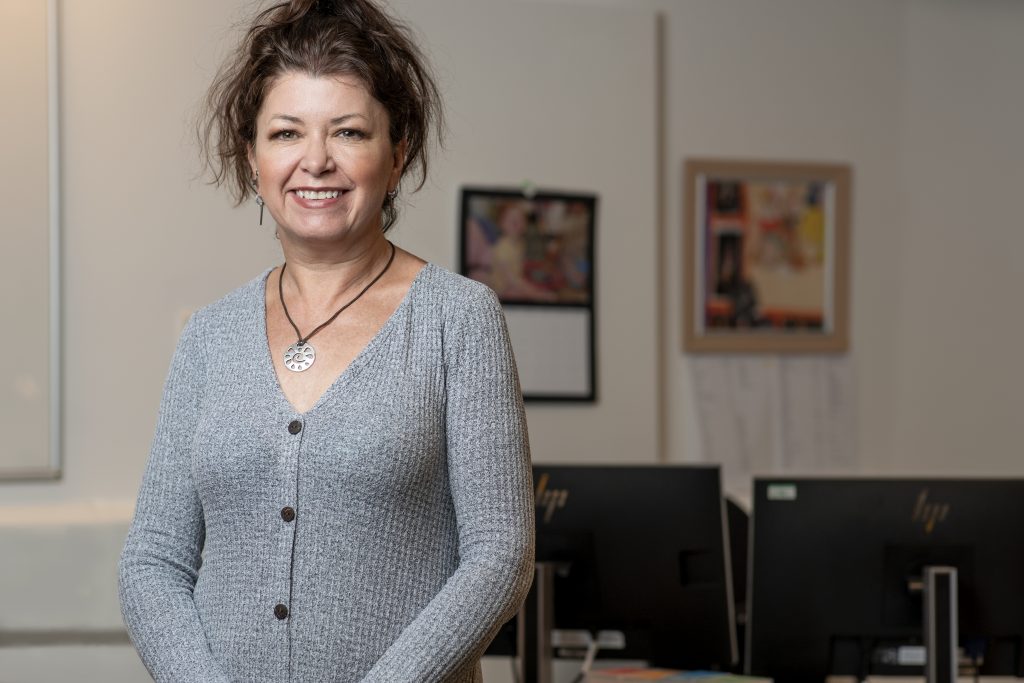What’s in a name?
An article by Laura Watkins, CEO, The Donaldson Trust.
These days, we all need to choose our words carefully. As trends and conventions change and evolve in society, so too does the language we use. The more we understand ourselves and others and identify the different ways we respond to the world around us, the more we need new ways of describing those responses.

You may, or may not, have come across a relatively new umbrella term – neurodiversity – which includes a broad range of more widely used terminology for example: autism, ADHD (Attention Deficit Hyperactivity Disorder), dyslexia, dyspraxia and Tourette’s. What all of these neurodiversities have in common, to put it simplistically, is in the neurodiversity by which the brain processes information. Neurodiversity is meant to be a non-judgemental expression that encompasses these common terminologies in a more inclusive way. It is being championed by many who identify as neurodiverse, including those with dyspraxia and dyslexia because it implies that these often over stereotyped ‘conditions’ are not simply about the inability to spell or catch a ball as many mistakenly believe.
For example, ‘neurodiversity’ is felt by some to be preferable to the (still widely used) Autism Spectrum Disorder, or ASD label, generally because of the use of the word ‘disorder’. There is a growing movement that is against the belief that being on the ‘autistic spectrum’, for example, is a disabling condition. The word ‘spectrum’ is itself is something of a controversy with many now arguing that autism is not something that affects people in different degrees; you are either autistic, or you’re not. However, an autistic person’s life may be more challenging where any additional medical conditions exist.
Herein lie the complexities of the language used. One of the strong arguments in favour of ‘neurodiversity’ as a definition is that it moves away from seeing autism, ADHD for example, as ‘conditions’ with ‘sufferers’ and instead redraws these as ‘states of mind’ that, simply put, define groups of people whose thought pathways, ways of expressing themselves, or response to their surroundings are distinct from what is perceived to be conventional. And we are not talking about a small group here. It’s been estimated that there are one in seven people; more than 10 percent of the population, who are neurodiverse, with many being unaware that their sensitivity to light, or sound, or ability to problem solve or dislike of socialising with strangers for example, may stem from their neurology rather than traits of their personality.
It’s important to point out that ‘neurodiversity’ is not a medical but a sociological term, that is being promoted and championed by those very people who would identify as neurodiverse. Conversely, those people who would not identify as neurodiverse may describe themselves or be described as ‘neurotypical’. This subtle linguistic difference is in effect a powerful psychological shift, because unlike ‘disabled’ and ‘abled’ there is a total absence of negativity. People are ‘diverse’ or ‘typical’ – this in itself is a rallying cry for society, and especially employers (and I’ll be exploring that subject in a future piece), to radically change entrenched and outdated views formed due to a lack of real understanding.
Although Scotland as a nation is arguably fairly forward thinking, there have been shocking examples in the US of dubious treatment programmes to ‘cure’ people with neurodiversities; at best these are useless and at worst, downright dangerous, with oxygen tank immersion and chelation therapy touted by unscrupulous medics as ‘treatments’. The response to this kind of demeaning approach has been to embrace differences rather than trying to suppress or readicate them, with an increasingly vocal and visible neurodiverse community who are redefining the stereotypes, still so beloved by the media and thus feeding into the often misguided public perception of neurodiversity as a whole. Hence the need for language that reflects this movement for positivity.
Young award-winning Irish literary sensation and autistic novelist, Naoise Dolan, has argued powerfully about how language is crucial to avoid isolation and discrimination:
“The way that “on the spectrum” is used as a catch-all term to describe people who are socially inept is “straight-up wrong”, Naoise Dolan argues. “Excavating a term to describe someone’s neurology with a negative trait is just ableist,” she explained in The Independent.
For balance, I should also point that for some people, even such a broad and positive term as ‘neurodiversity’ is unwelcome. Some who have been diagnosed with medical terms under this umbrella just don’t want to be labelled at all; other people prefer more specific descriptors and feel confident and proud to use them. Some people also find labels as the only useful access to various means of support.
At The Donaldson Trust, where we are pioneering ways to give neurodiverse people a voice and a platform from which to speak, as well as educating others around all aspects of this subject; we are passionate about encouraging our children and young people to be proud and positive; giving them the tools and vision to enable a bright future. Ultimately, we want to be talking about diversity, not disability, celebrating difference not segregation. The words we choose are more important now than ever.